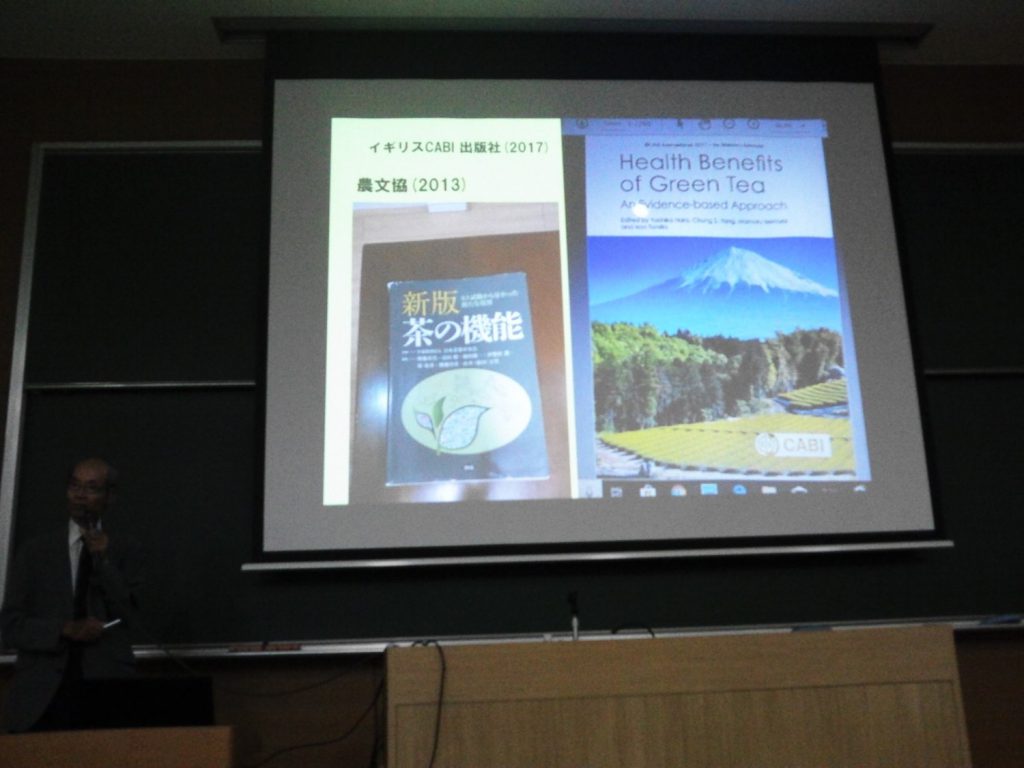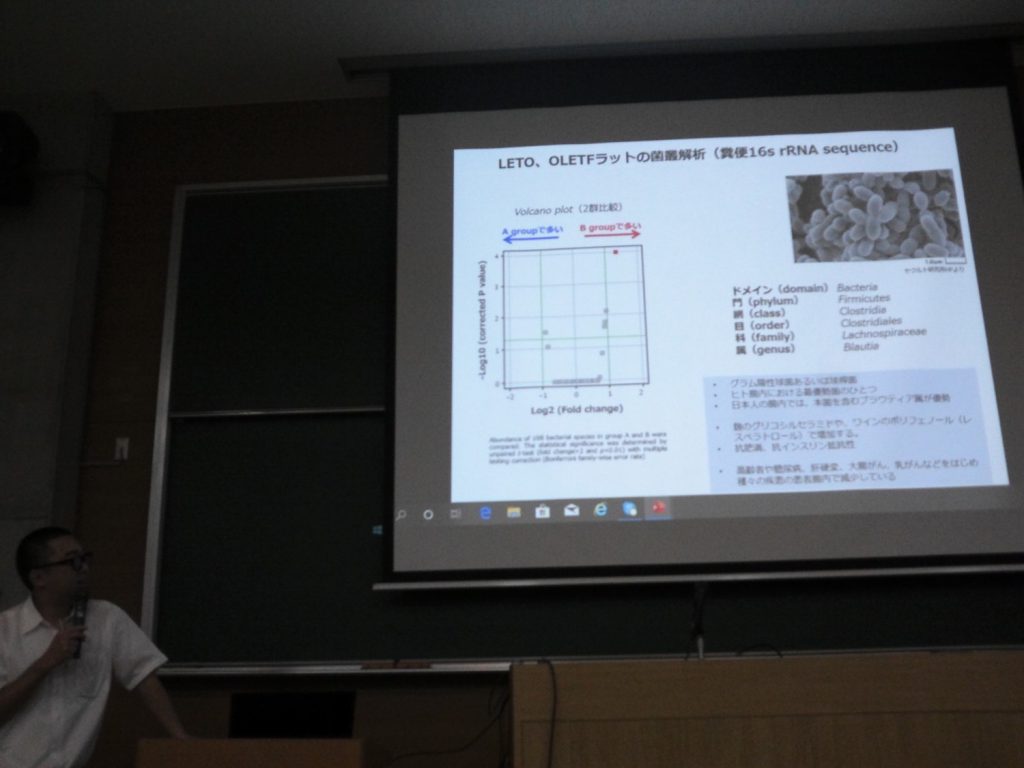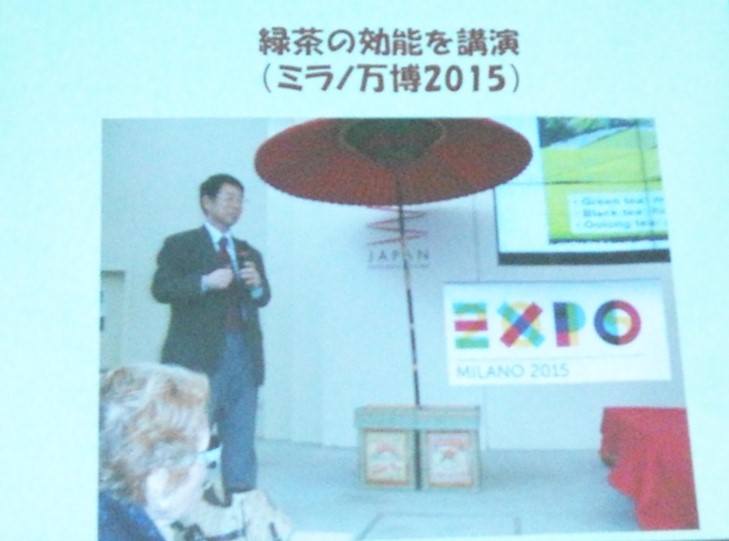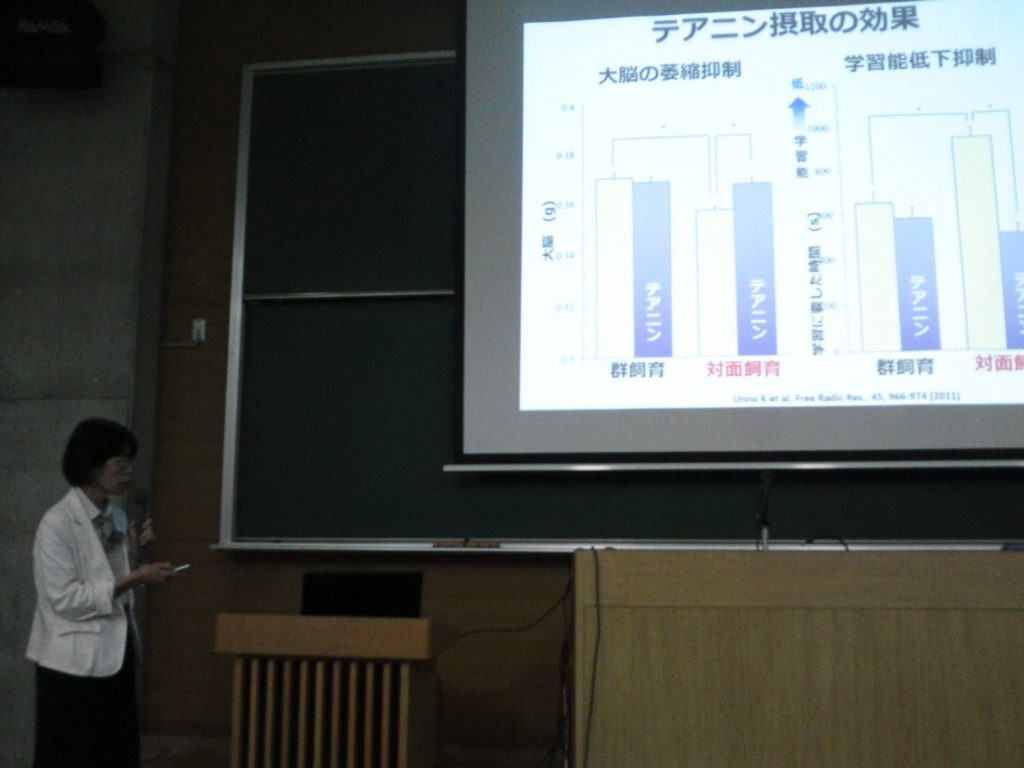The University of Shizuoka has a special department of tea science “Tea Science Center”, where various researchers join and study a wide variety of academic theme of tea.
The Tea Science Center regularly hold open seminars for students and those who are interested in tea science. For example, 2 specialists of tea science from UC Davis gave open lectures in the center on the last December, as posted before.
On the 27th July, the Tea Science Center held a special seminar of tea science for human health, where many visiting scholars gave lectures of health benefits of Japanese tea.
I’d like to share the information given in each lecture from the next post as a series of tea science post.
In this post, the outline of the seminar is described as follows.
Emeritus Professor Mamoru ISEMURA – Health Benefits of Japanese Green Tea
The emeritus professor Isemura gave a presentation about overview of health benefits of Japanese tea and the history of tea health science.

As many valuable facts have been proven by self-experimentation performed by scientists themselves like Werner Forssmann famous for the catheter, he also test the effect of tea catechins on the herpes zoster by self-experimentation. He pasted tea-catechin medicine “theaphenon”, which was developed by Dr. Hara, with a little amount of water on his diseased skin. As a result, his skin recovered for less than 1 week.
Assistant Professor Noriyuki MIYOSHI – Tea Catechins Affect Intestinal Flora
The intestinal flora is now considered one of the most important aspects for human health. Based on the presentation by the professor Miyoshi, tea catechins can change our intestinal flora and the intestinal flora can affect the digestion of tea catechins. His presentation implied the possibility that regularly drinking tea can improve our intestinal flora, although the fact has not been epidemiologically proven yet.

Professor Hiroshi YAMADA – Anti-Oxidative Power of Tea Catechins
The presentation given by the professor Yamada suggested the possibility that metabolites of tea catechins can reach our brain through blood-brain barrier and improve cognitive function or reduce the progress of cognitive dysfunction. In fact, an excellent study reveals that some metabolites of tea catechin in our intestine can pass through blood-brain barrier.

Visiting Professor Keiko UNNO – Stress Relief by Tea
Experiments performed by her research group indicated that the lifetime of mouse under the stressful condition can be elongated to the average lifetime of normal mouse by theanine intake. Interestingly the stress reduction by theanine is more effective with arginine co-existence.

In addition to these applied health science, I’m very curious with her basic research. Her research group reported the blood-brain barrier permeability of green tea catechin metabolites[622]. In the series of future posts, I’d like to introduce the contents of her study in more detail.
Visiting Professor Shinichi MEGURO – Tea Catechins Enhance Fat Metabolism
His research group of Kao Co. Ltd., has reported the effects of continuous intake of green tea on fat metabolism. Recently the research group of Kao Co. Ltd., revealed the possibility that tea catechin can activate brown adipose tissue.
Personally I wish Kao Co. Ltd., will study the basic aspects of tea polyphenols interaction with various components in intestinal condition and develop the original products which enhance the beneficial effects of tea polyphenols using their original amphiphilic substances based on their own core technology.
Project Professor Yoriyuki NAKAMURA – Matcha as a Worldwide Superfood
Now matcha is recognized as a superfood worldwide. The main effects of matcha on our health are derived its unique components, theanine and tea catechins. Professor Nakamura has tried to measure these characteristic constituents of various matcha teas commercially available in many countries. The result suggests that matcha made in Japan has higher content of theanine and chlorophyll. He speculates the reason could be caused by the unique cultivation under the shade and intrinsic feature of tea cultivars in Japan.
Please be looking forward to see the series of tea science posts for these researches!
If you have some questions or opinions, please let me know using the comment message below.
< References >
[622] Unno, K. et al. (2017) : Blood-Brain Barrier Permeability of Green Tea Catechin Metabolites and their Neuritogenic Activity in Human Neuroblastoma SH-SY5Y Cells, Molecular Nutrition and Food Research, Vol.61.
